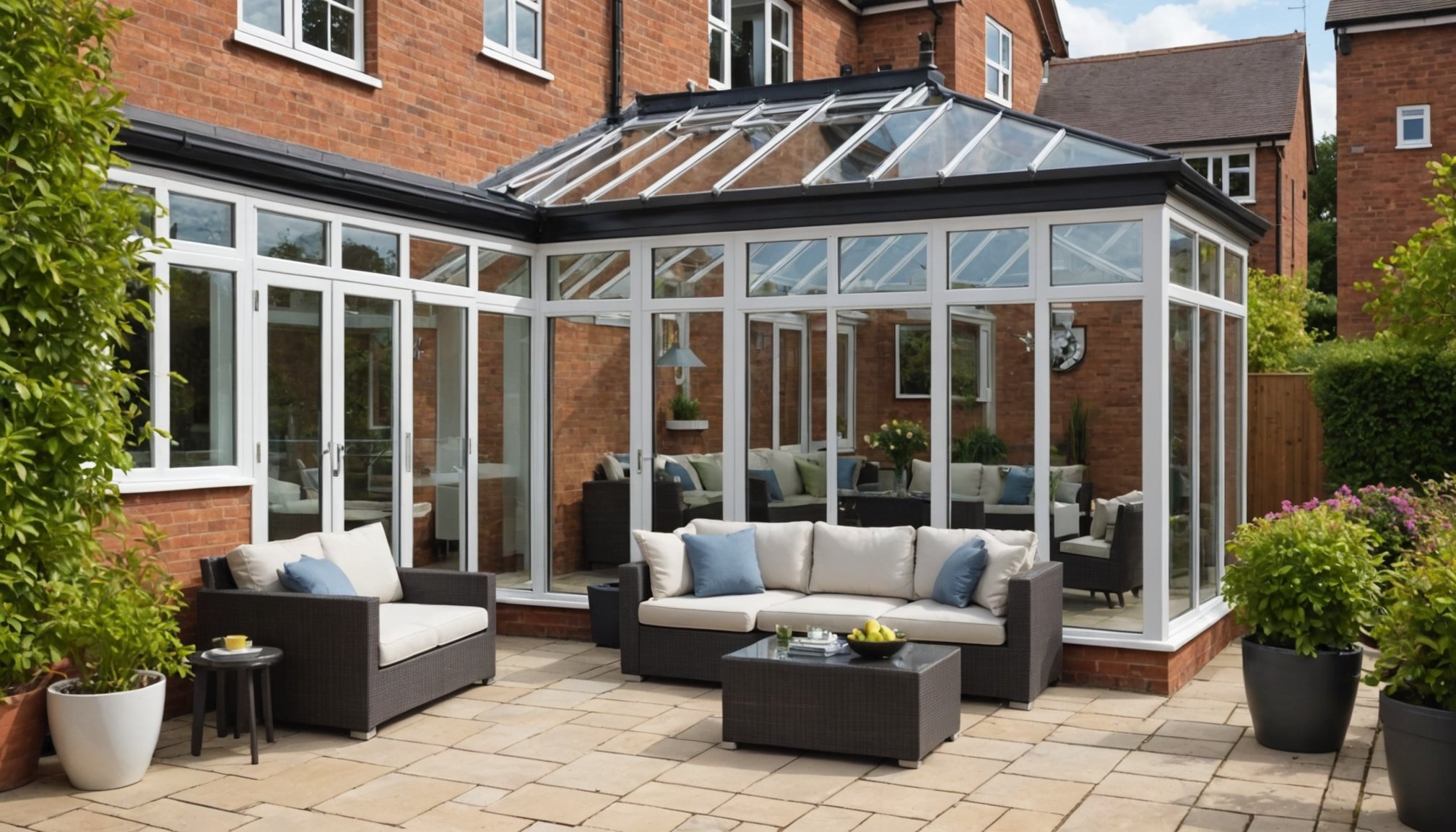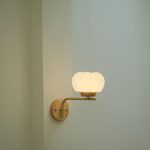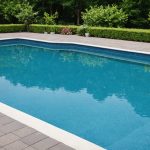Boosting Privacy in Your UK Glass-Walled Conservatory: Top Strategies
When you think of a conservatory, the first thing that comes to mind is the abundance of natural light and the seamless integration with your outdoor space. However, one of the primary concerns for many homeowners is maintaining privacy in these glass-walled extensions. Here’s a comprehensive guide on how to boost privacy in your UK glass-walled conservatory, ensuring you can enjoy your living space without compromising on your personal privacy.
Understanding Your Conservatory’s Design
Before diving into the strategies for enhancing privacy, it’s essential to understand the design elements of your conservatory. Here are a few key aspects to consider:
In the same genre : Top Strategies for Reviving Authentic Wood Floors in Your UK Period Home
Types of Conservatories
- Traditional Conservatory: These are the classic designs that often feature a glass roof and walls.
- Orangery: A hybrid between a conservatory and an extension, typically with a solid roof and more brickwork.
- Lean-To Conservatory: A simpler design with a sloping roof, often used for smaller spaces.
Each type has its unique characteristics, and understanding these will help you choose the most effective privacy solutions.
Choosing the Right Glazing
The type of glazing used in your conservatory is crucial for maintaining privacy. Here are some options:
In the same genre : The Ultimate Guide to Selecting Durable Wood for Long-Lasting UK Garden Furniture
Double Glazing
Double glazing is a standard feature in most modern conservatories, offering excellent thermal efficiency and some level of privacy due to the gap between the two panes of glass.
Tinted or Frosted Glass
- Tinted Glass: Reduces glare and heat gain while providing a level of privacy by making it harder for outsiders to see in.
- Frosted Glass: Offers a higher level of privacy by obscuring the view from the outside.
| Type of Glazing | Thermal Efficiency | Privacy Level | Cost |
|
|--------------------|
|-------------------|
| Double Glazing | High | Low | Moderate |
| Tinted Glass | High | Medium | Higher |
| Frosted Glass | High | High | Higher |
Adding Window Treatments
Window treatments are an effective and versatile way to enhance privacy in your conservatory.
Blinds and Shades
- Venetian Blinds: Easy to adjust and can be made from various materials, including wood and aluminum.
- Roman Shades: Provide a more elegant look and can be customized with different fabrics.
- Vertical Blinds: Ideal for larger windows and can be made from a variety of materials.
Curtains and Drapes
- Thermal Curtains: Not only provide privacy but also help in maintaining the temperature inside your conservatory.
- Blackout Curtains: Perfect for blocking out light and ensuring complete privacy.
Incorporating Solid Roofs and Walls
For a more permanent solution, consider incorporating solid elements into your conservatory design.
Tiled Roof
A tiled roof can significantly reduce the amount of glass in your conservatory, thereby increasing privacy. It also offers better thermal efficiency and can be designed to match the existing roof of your home.
Solid Walls
Adding solid walls or partial walls can help in creating a more private space. This can be particularly useful if you live in a densely populated area.
Landscaping and Outdoor Solutions
The area around your conservatory can also play a crucial role in enhancing privacy.
Planting Trees and Shrubs
- High-Growing Plants: Trees and shrubs can act as natural barriers, blocking the view from neighboring properties.
- Hedges: Dense hedges can provide an immediate solution and can be trimmed to maintain a neat appearance.
Fencing and Screens
- Privacy Fencing: Installing a high fence around your garden can prevent outsiders from looking into your conservatory.
- Bamboo Screens: A more aesthetic option that can be placed around the perimeter of your conservatory to block the view.
Legal Considerations: Planning Permission and Building Regulations
When making significant changes to your conservatory, it’s important to consider the legal aspects.
Planning Permission
- While many conservatory extensions do not require planning permission, there are certain criteria to meet, such as the size and position of the extension relative to your property.
- Always check with your local authorities to ensure compliance.
Building Regulations
- These regulations focus on the structural integrity and safety of the extension.
- Ensure that any changes, especially those involving solid roofs or walls, comply with building regulations to avoid any legal issues.
Practical Tips for Year-Round Privacy
Here are some practical tips to maintain privacy in your conservatory throughout the year:
Seasonal Adjustments
- Summer: Use lighter curtains or blinds to allow natural light while maintaining privacy.
- Winter: Switch to thicker, thermal curtains to keep the heat in and the cold out.
Smart Glass Technology
- Smart Glass: This technology allows you to switch the glass from transparent to opaque with the touch of a button, providing instant privacy.
Privacy Screens
- Portable Screens: These can be moved around to block the view from different angles, especially useful if you have a large conservatory.
Transform Your Conservatory: Enhancing Value and Functionality
By implementing these strategies, you not only boost the privacy of your conservatory but also enhance its overall value and functionality.
Energy Efficiency
- Energy-efficient glazing and solid roofs can reduce heat loss and energy bills, making your conservatory a more comfortable living space year-round.
Aesthetic Appeal
- Well-designed privacy solutions can add to the aesthetic appeal of your conservatory, making it a beautiful and functional extension of your home.
Increased Living Space
- A private conservatory can be used as an additional living space, perfect for reading, dining, or simply relaxing.
Maintaining privacy in a glass-walled conservatory is achievable with the right strategies. From choosing the appropriate glazing to incorporating solid roofs and walls, and even landscaping solutions, there are numerous ways to ensure your conservatory remains a private and comfortable living space.
As Sarah Johnson, a homeowner from London, notes, “After installing tinted glass and adding some privacy screens, our conservatory has become our favorite room in the house. It’s perfect for relaxing without feeling like we’re on display.”
By following these tips and considering your specific needs and design, you can transform your conservatory into a private and energy-efficient extension of your home, enhancing both its functionality and value.
### Key Takeaways
- **Choose the right glazing**: Double glazing, tinted glass, or frosted glass can enhance privacy.
- **Use window treatments**: Blinds, shades, curtains, and drapes can provide adjustable privacy.
- **Incorporate solid elements**: Tiled roofs and solid walls can significantly increase privacy.
- **Landscaping solutions**: Planting trees, hedges, and using fencing or screens can block external views.
- **Consider legal aspects**: Ensure compliance with planning permission and building regulations.
- **Make seasonal adjustments**: Use different window treatments and privacy solutions based on the season.
- **Invest in smart technology**: Smart glass can offer instant privacy with a touch of a button.
Window Films and Tints
Glass-walled conservatories are a beautiful addition to any home, yet they pose challenges in terms of maintaining privacy and temperature control. Here, window films and tints become indispensable. Let’s explore the various types of window films that are suitable for your space.
Types of Window Films
There are numerous window films available, including reflective films for enhanced privacy, solar control films for managing heat, and UV protection films to protect your furnishings from fading. Reflective films are particularly effective as they allow visibility from the inside while safeguarding privacy from the outside.
Benefits of Privacy Tints
Applying window tints significantly boosts privacy without sacrificing natural light. Besides, many tints also offer UV protection, reducing harmful sun exposure by blocking up to 99% of UV rays. This dual advantage ensures a more comfortable and safer environment.
Installation Tips and Suppliers
When considering installation, it’s vital to clean the glass thoroughly to ensure a seamless application. Films should be cut precisely to fit each pane. For those looking for professional services, several UK suppliers provide installation services alongside products, such as The Window Film Company and Purlfrost, both known for their range and expertise.
Incorporating Plants for Natural Privacy
As property boundaries blur, finding creative landscaping solutions becomes essential to maintain privacy. Privacy plants offer a sustainable, aesthetically pleasing approach to creating natural privacy barriers.
Best Plant Species for Privacy Barriers
Selecting the right plant species is critical. Evergreens like Arborvitae and Boxwood provide year-round coverage, while Bamboo grows rapidly, making it perfect for fast solutions. These species can effectively block sightlines and sound, improving your property’s seclusion.
Vertical Gardening for Space Efficiency
For smaller areas, consider vertical gardening, a rewarding option that maximizes space. Wall-mounted planters or trellises with climbing plants, such as Clematis or Ivy, can transform vertical surfaces into lush, green privacy screens. This not only saves room but also increases the aesthetic value of your property.
Seasonal Considerations
Maintaining plant health requires understanding seasonal needs. Opt for plants that can withstand your climate’s temperature range and rainfall. For example, choosing deciduous varieties like Privet might offer robust summer privacy, but remember they shed leaves in winter. Consistent care, including watering, pruning, and pest control, ensures your green solutions remain effective throughout the year.
Harnessing the power of nature’s artistry, you can achieve a balance between beauty and privacy with these innovative plant strategies.
Decorative Screens and Partitioning
Decorative screens and privacy partitions serve as innovative solutions for creating space division within a conservatory. They blend practicality with style and can complement a variety of décors. Whether you prefer contemporary, rustic, or classic themes, there’s a decorative screen to enhance your space.
When selecting materials for durability and visual appeal, consider options like wood, metal, or fabric. Wooden screens offer a timeless look and are often chosen for their warmth and elegance. Metal screens provide a modern, sleek finish and are excellent for durability. Fabric screens, meanwhile, introduce a softer, more adaptable aesthetic, allowing for both privacy and light diffusion.
Should you go the DIY route or opt for professional installation? DIY installation is ideal for those who enjoy hands-on tasks and have basic tools readily available. It’s cost-effective and allows for personal customization. Conversely, professional installation guarantees a polished finish and quicker setup, which might be appealing if you’re short on time.
Ultimately, choosing the right partition depends on your personal taste and needs. From enhancing privacy to creatively dividing your space, decorative screens are versatile additions that balance functionality with beauty.
Introduction to Privacy Solutions
Privacy in UK glass conservatories is an increasingly pressing concern among homeowners. Typically, conservatories boast open and airy designs that invite natural light but may inadvertently compromise personal privacy. Balancing transparency with seclusion is pivotal for maintaining comfort and security in such spaces, especially given the rising popularity of conservatories in UK homes.
UK housing designs often integrate conservatories as extensions of living spaces. These structures, though aesthetically pleasing, sometimes expose residents to unwelcome eyes. A key concern is the visibility through glass walls, which can transform these charming areas into overly public spaces, despite their intended private nature.
Homeowners frequently face common challenges related to privacy in conservatories, primarily due to the dominance of glass in these structures. Issues can range from inadequate shading options to ensure discreetness, to the difficulty of implementing effective solutions that do not detract from the conservatories’ allure. Moreover, addressing these challenges without drastically altering the design or aesthetic of these spaces is a significant demand on UK residents.
Understanding these privacy concerns is the first step toward effective solutions that harmonize the conservatory’s charm with one’s desire for personal space. Navigating these challenges requires innovative solutions that consider both functional needs and design sensibilities.
Installing Blinds and Shades
When it comes to blinds installation for glass structures like conservatories, selecting the appropriate type is crucial for achieving effective light control. Various options include roller blinds, Roman blinds, and Venetian blinds, each offering unique benefits tailored to different needs. Roller blinds, for instance, provide a neat and compact solution, while Roman blinds add a touch of elegance.
Choosing the right shades for conservatories also involves considering the overall aesthetic. To complement your conservatory’s design, pick colors and materials that harmonize with existing decor. Opt for natural materials if your conservatory has a rustic theme, or sleek, modern fabrics for a contemporary look.
Understanding the pros and cons of each shading option can guide your decision. Venetian blinds offer precise light control with adjustable slats but may require regular cleaning to prevent dust buildup. Roman blinds, while stylish, can be cumbersome when it comes to adjustments. Roller blinds are versatile and easy to operate but might lack the visual appeal of other styles.
In conclusion, consider both functional and aesthetic aspects when selecting blinds for your glass structure. This will ensure you achieve the desired ambiance and light control of your conservatory.
Window Treatments Options
When it comes to window treatments for glass conservatories, there are several options to consider. Each type offers unique advantages, particularly in terms of privacy, aesthetics, and functionality. Choosing the right one can transform your space into an inviting, private retreat.
Blinds are an excellent choice for those prioritising privacy. They’re adept at controlling light and offer a sleek, modern look. Available in numerous materials, blinds can be tailored to complement your conservatory’s design. They are easy to adjust, allowing for flexibility in managing light and privacy simultaneously.
Curtains bring a sense of warmth and elegance. For those who prefer a softer aesthetic, curtains can be an enticing option. They come in a variety of fabrics and patterns, providing ample opportunity to match or contrast with your existing decor.
Shades offer a compromise between blinds and curtains. They can achieve high levels of privacy while maintaining a minimalist look. They can be found in various opacities, making them a versatile choice.
When selecting from these window treatments, consider the overall aesthetic you wish to achieve. Harmonising your choice with the existing decor can enhance the conservatory’s appeal and ensure it serves its role effectively.
Legal and Regulatory Considerations
In the UK, modifying a conservatory can trigger specific regulations and building codes. Compliance is crucial to avoid potential legal issues. Homeowners should be aware that changes to conservatories might not require full planning permission if they adhere to specific guidelines. Yet, it’s essential to check whether your local council imposes any additional rules. This involves staying informed about local regulations that might affect your plans, from respecting building codes to privacy concerns.
Privacy solutions are vital when modifying a conservatory. Homeowners should consider how their plans could impact not only their comfort but also their neighbors’ privacy. The implementation of screening solutions, such as frosted glass or clever landscaping, can ensure privacy while complying with UK regulations.
Contacting local authorities is a recommended step for homeowners. Local councils can offer guidance on the necessary approvals and inform you about conservatory-specific rules. This step is essential to ensure you are on the right side of the law.
By understanding these regulations and engaging in proactive dialogue with local authorities, homeowners can seamlessly integrate upgrades or changes to their conservatories. Ignoring these considerations may lead to complications, so it is best to approach modifications carefully.
Utilizing Landscaping for Privacy
Incorporating landscaping for conservatory privacy effectively enhances outdoor privacy by using a blend of nature and design. By strategically planting around your conservatory, you can create a secluded oasis. The planning of hedges, shrubs, and trees is essential. For immediate privacy, consider fast-growing species such as bamboo or Leyland Cypress, as these can create a natural fortress. Tall ornamental grasses and climbing vines on trellises can also form lush barriers.
When designing these outdoor spaces, balance must be achieved between aesthetics and functionality. Mixing different heights and textures can offer both beauty and practicality. Some plant arrangements provide not only privacy but also act as noise buffers and air purifiers.
Maintenance considerations are key to sustaining these landscaping features. Regular trimming and pruning are necessary to maintain the desired shape and size, especially for fast-growing plants. Ensure that the selected plants suit your climate and soil conditions to thrive with minimal intervention. Additionally, structures such as trellises or pergolas must be checked for stability and durability.
Leveraging the right mix of flora and structures in your landscaping design can significantly improve the privacy of your conservatory, creating a tranquil, secluded space, while adding value and appeal to your property.
Professional Consultation and Services
When considering a conservatory upgrade, seeking guidance from interior design experts can bring numerous benefits. These professionals not only possess a keen eye for aesthetics but also offer invaluable insights into effective conservation strategies. With their expertise, your conservatory can be transformed in a way that marries both style and functionality, ensuring the space is sustainable and visually appealing.
Finding reputable experts in the UK for home improvements requires some research. Recommendations and reviews play a crucial role in identifying specialists who consistently deliver quality workmanship. A professional with a proven track record will guide you through the design process, tailor their services to your unique needs, and maintain transparency throughout the project.
Crucially, when hiring a professional for privacy enhancements, thoughtful consideration is essential. Assess their portfolio to gauge their experience with projects similar to yours. Discuss your privacy concerns openly and evaluate their proposed solutions. It’s also wise to review any contracts or agreements carefully to ensure that all aspects of the service meet your expectations.
Engaging with experts in these fields can frequently lead to enhanced living spaces, both in terms of functionality and privacy. Their professional advice can transform not just a room, but also the overall aesthetic and comfort of your home.
Employing Decorative Films and Screens
Decorative privacy films offer a versatile solution for enhancing the aesthetics and privacy of glass surfaces. Among the most popular options are frosted and tinted films, each providing unique visual effects and levels of opacity. Frosted films diffuse light and obscure vision, adding privacy while maintaining a soft, ambient light. Tinted films, on the other hand, reduce glare and block some UV light while giving a subtle coloured effect to windows.
Applying these films is a straightforward process, with options available for both professional installation and do-it-yourself enthusiasts. DIY kits come with easy-to-follow instructions and necessary tools, making it feasible for anyone to transform their space in just a few hours. When embarking on a DIY project, it’s essential to ensure the glass surface is clean and free from debris to achieve a smooth, bubble-free finish.
In addition to films, decorative screens provide further flexibility and style. These screens are available in a range of materials, patterns, and sizes, allowing more personalized applications. They can be used in various settings—indoors or outdoors—and moved or adjusted according to your privacy needs or aesthetic desires. The combination of these options enables individuals to tailor their environments creatively and effectively.
Innovative Technologies for Privacy Enhancement
As conservatories become a more integral part of modern living spaces, the need for privacy solutions is fundamental. Smart technologies offer an excellent blend of functionality and privacy, with smart glass technology leading the way. Smart glass can switch between transparent and opaque states, providing users with on-demand privacy without the need for conventional curtains or blinds. This innovation not only enhances privacy but also optimizes energy efficiency by regulating sunlight entry.
Complementing smart glass, automated shading solutions are another fantastic option. These systems can be programmed to adjust automatically based on the time of day or outdoor lighting conditions. This feature ensures ease of use, making them a favourite for those who want hassle-free operation.
Looking forward, future trends in privacy enhancement for conservatories will likely focus on even more seamless integration of these smart technologies. The aim is to develop systems that adapt intelligently to users’ preferences and environmental changes, pushing the boundaries of modern innovations. These advancements promise not only enhanced privacy but also a harmonious balance between indoor comfort and outdoor ambiance.
Installing Privacy Screens and Panels
Choosing the right privacy screens for conservatories involves understanding the different options available. Freestanding privacy screens are versatile and can be moved and adjusted as needed. They provide flexibility, which is ideal if you frequently change the layout of your space. On the other hand, fixed panels offer a more permanent solution, integrating seamlessly into the structure for a cohesive look.
The choice between temporary and permanent solutions largely depends on your privacy needs and potential future changes to your conservatory. Temporary screens allow for easy adjustments, offering adaptability as the natural light shifts throughout the day. However, if security is a concern, permanent panels might be more fitting, providing robust coverage and durability.
When selecting a privacy screen, it’s crucial to consider the material. Options such as wood, metal, and synthetic materials each have distinct advantages. Wood offers a natural aesthetic, while metal provides a sleek, modern look with longevity. Synthetic materials can mimic various finishes and offer resistance to weather elements, enhancing durability.
In summary, the choice of privacy screens should match your conservatory’s style and address your specific privacy concerns, ensuring both functionality and appeal.
Adhering to UK Regulations and Guidelines
In the United Kingdom, adhering to specific regulations is crucial when considering privacy modifications for conservatories. Understanding these UK regulations for conservatories ensures your project aligns with legal requirements and avoids potential future issues.
Planning Permission Requirements
When altering your conservatory for privacy, it’s important to determine if planning permission is needed. Generally, conservatories are classified under permitted developments, meaning you often don’t need prior approval. However, if your modifications significantly change the external appearance or size, you may need to consult your local council for approval. It’s advisable to contact them early in the planning process to avoid unnecessary delays or complications.
Local Council Regulations
Each local council might have unique regulations affecting privacy solutions in conservatories. These can vary based on structural alterations, aesthetic changes, or even specific geographical restrictions. It’s essential to check with your local council to ensure your planned modifications don’t conflict with any set guidelines. Often, councils provide detailed guidance documents, which can be very beneficial in planning your projects.
Importance of Compliance
Ensuring compliance with UK regulations for conservatories is vital for long-term modifications. Non-compliance could lead to forced removals or fines, impacting both the monetary and structural aspects of your project. In the long run, meeting regulatory standards not only secures your investment but also ensures peace of mind.
Expert Tips for Enhancing Privacy
When aiming to enhance privacy in your conservatory, it’s wise to seek expert advice from design professionals or landscape architects. Their insights can transform your conservatory into a private haven without sacrificing aesthetics. These experts can tailor solutions that harmonise with your existing décor while maintaining an air of elegance.
Consulting professionals about conservatory privacy offers numerous advantages. Their experience ensures not only the practical aspects are covered but also that the solutions will aesthetically complement your home’s overall design. They can suggest materials, designs, and orientations that maximise benefits and appeal.
Take inspiration from homeowners across the UK who have successfully incorporated professional recommendations into their privacy enhancements. For instance, one homeowner integrated natural elements and trellises, creating a peaceful sanctuary that seamlessly blended with the garden. Testimonials reflect the importance of harmonising privacy features with the structure and surrounding landscape for optimal results.
When it comes to balancing aesthetics with functionality, consider innovative designs. The goal is to ensure conservatories remain functional for leisure and relaxation while offering privacy. Opt for adaptive solutions, like retractable screens or cleverly positioned plantings, which provide flexibility and ease of use. These expert tips can lead you to success in crafting a serene and secluded conservatory space.











